
FOOD POLICY
AND ADVOCACY

CITY OF HARTFORD
ADVISORY COMMISSION
ON FOOD POLICY
is our role with the City of Hartford Advisory Commission on Food Policy. The Hartford Advisory Commission on Food Policy was established by City ordinance in 1991 to implement recommendations from the Mayor’s Task Force on Hunger. Continuously operational since then, its purpose is to integrate all City agencies in a common effort to improve the availability of safe and nutritious food at reasonable prices for allHartford residents, particularly those in need.
The Commission’s work is guided by four goals:

TO ELIMINATE HUNGER AS AN OBSTACLE
to a happy, healthy, and productive life in the City;
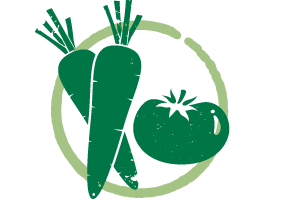
TO ENSURE THAT A WIDE VARIETY
of safe and nutritious food is available for City residents;

TO ENSURE THAT ACCESS TO FOOD
is not limited by economic status, location, or other factors beyond a resident’s control; and

TO ENSURE THAT THE PRICE OF FOOD
in the City remains at a level approximating the level for the state.
Hartford Food System provides staffing for the Commission and also serves as one of its members.
As part of its advisory role to city officials, the Commission annually prepares a series of recommendations on food and nutrition issues. Recent recommendations include supporting mid-sized grocery stores, ensuring that all schools in Hartford have active gardens, and reducing food waste.
The Commission meets monthly at City Hall on the second Wednesday of every month from 3:30 to 5:15. Meetings are open to the public and everyone is encouraged to attend!
The City of Hartford Advisory Commission on Food Policy has just released its 2020 annual report containing an analysis of the pandemic’s impact on Hartford and policy recommendations to rebuild in the pandemic’s aftermath. The report is explicit about the role systemic racism has played in exacerbating the harm of the pandemic for people of color, and outlines what steps must be taken to correct these injustices. This year, the policy recommendations fall into three categories: support business and job recovery (expanding small business loans/grants and prioritizing those with living wage jobs, support redevelopment of the Hartford Regional Market); protect and expand emergency food aid (increase SNAP benefits, fund farmers’ market incentive programs); and develop a plan for growing and processing food in Hartford (develop targets for growing and processing food and identify best practices for encouraging more food production).
The commission has also submitted proposed changes to its founding ordinance, to reflect a broader approach to food policy and alter the membership to be more equitable. The proposed changes would expand the Commission’s goals from solely addressing hunger to also advocating for more production of food in the city, more sustainable practices throughout the food system, more community control over the food system, and ensuring access to nutritious, culturally relevant food. The changes would also increase the membership from 15 to 21 persons, introduce term limits (two three-year terms), and require that 2/3rds of the membership are Hartford residents. The changes to membership emphasize the need for the commission to reflect Hartford’s demographics.
Full annual Commission reports can be accessed from the links below.
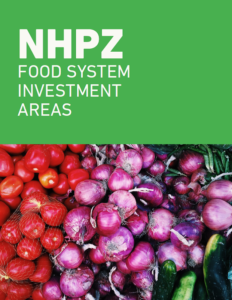 In February 2017, Community Solutions, Inc. engaged Wholesome Wave, a Connecticut-based, national non-profit experienced in programs, policy and research focused on food access, affordability, and government food assistance, and Hartford Food System, a Hartford-based nonprofit with expertise in culturally responsive urban food access programming and convening, to develop a tactical implementation plan to address the challenges of food access and affordability in the North End of Hartford. Support for this project was provided by Well Being 360, a national effort of Trinity Health,and Rx Foundation. This report is the culmination of the process, including opportunities that, when coupled with the correct partnerships, funding, and leveraged resources, could significantly help residents optimize government food assistance and incentive programs, increase food security, and decrease food-related diseases in Hartford’s North End. These opportunities are also scalable to the rest of the city of Hartford and beyond.
In February 2017, Community Solutions, Inc. engaged Wholesome Wave, a Connecticut-based, national non-profit experienced in programs, policy and research focused on food access, affordability, and government food assistance, and Hartford Food System, a Hartford-based nonprofit with expertise in culturally responsive urban food access programming and convening, to develop a tactical implementation plan to address the challenges of food access and affordability in the North End of Hartford. Support for this project was provided by Well Being 360, a national effort of Trinity Health,and Rx Foundation. This report is the culmination of the process, including opportunities that, when coupled with the correct partnerships, funding, and leveraged resources, could significantly help residents optimize government food assistance and incentive programs, increase food security, and decrease food-related diseases in Hartford’s North End. These opportunities are also scalable to the rest of the city of Hartford and beyond.


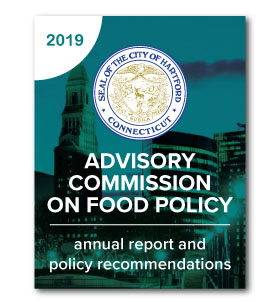
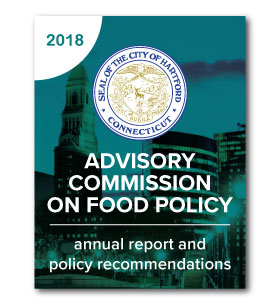
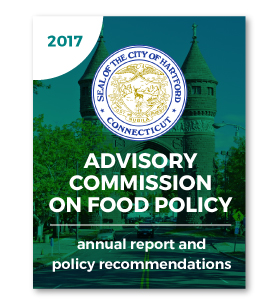
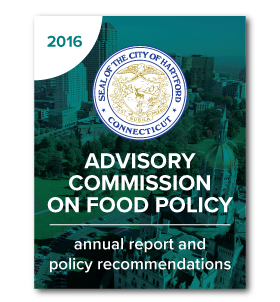
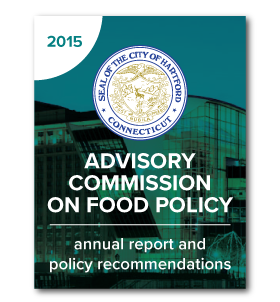
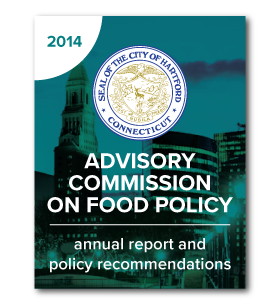
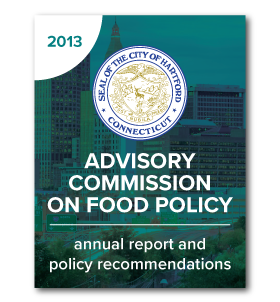
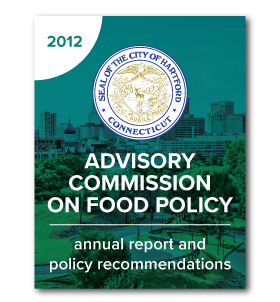
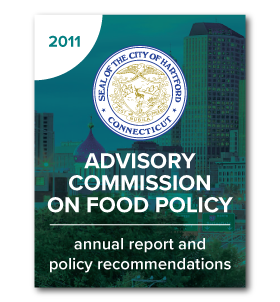
 190 Wethersfield Avenue Hartford, CT 06114
190 Wethersfield Avenue Hartford, CT 06114